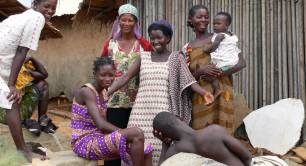Entrepreneurship critical to catalyse healthcare equality reveals new research
Innovative income streams are crucial to increase access to affordable, quality primary care services in developing countries, reveals new research.
The Rapid Routes to Scale report – published by the International Centre for Social Franchising (ICSF) and the University of Toronto – states that while many developing countries have made improvements in some disease-specific areas of their healthcare systems, access to primary care “continues to be a significant challenge”.
CEO of ICSF Dan Berolowitz told Pioneers Post: "Providers need to be entrepreneurial to jump on opportunities, test them quickly and not be scared to move on if things aren't working."
Primary health care generally refers to the services that act as the first point of contact in healthcare systems. They are important for universal health promotion and disease prevention.
“As Ebola ravages the west coast of Africa, almost never has there been a time when the failure of primary care health systems has been so starkly illustrated, and so devastating,” summarised Berolowitz.
The new report, which was funded by organisations including the Bill and Melinda Gates Foundation and GlaxoSmithKline, recommends that primary care providers from the private, public and social sectors must explore alternative options for financing treatments.
This is a rapidly evolving market and no one really knows where the future income streams are going to come from.
Examples include microinsurance, a type of insurance product tailored for people on low incomes and with little savings, and subscription or membership fees that would help make payments for treatments and consultancy more manageable as fees would be paid over an extended period of time.
The report also recommends that providers explore the possibility of selling other products or services to support their primary care work. For example, Health by Motorbike uses motorbikes to transport health professionals to rural areas and then rents the bikes out to women for non-medical purposes when its programme does not require them.
Similarly, international NGO Amref, which is working to ensure marginalised communities in Africa have access to healthcare, supplements its income by providing evacuation insurance for travellers in remote areas.
Berolowitz said: "This is a rapidly evolving market and no one really knows where the future income streams are going to come from. Properly resourcing innovation can be the toughest thing when there is a business to run but the chance of really growing without it is limited."
Rapid Routes to Scale also sets out a further five recommendations of ways to reform primary health care: strong patient relationships, innovative staffing models, leadership characteristics, standardised and efficient processes, and collaboration.
Rapid Routes to Scale: scaling up primary care to improve health in low and middle income countries is available to download here.
Photo credit: Tony Roberts



